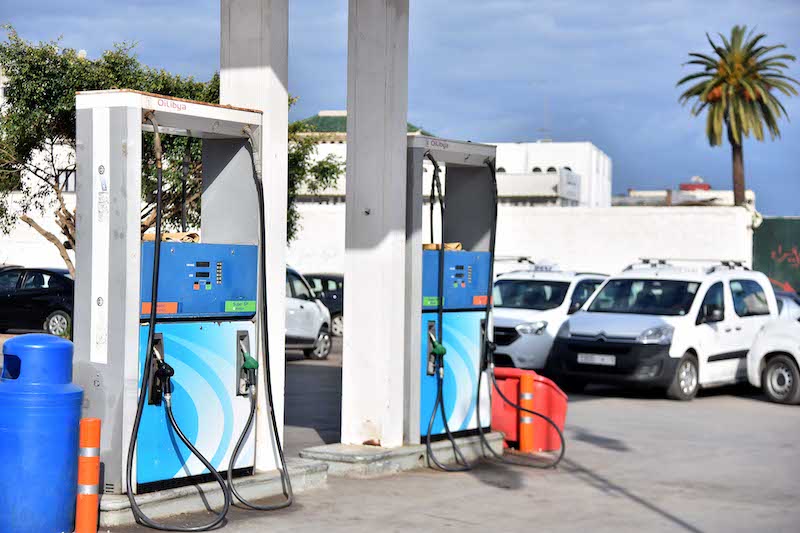Global Oil Price Plunge Sparks Questions About Impact on Morocco's Fuel Market

Following ongoing fluctuations in international energy markets, oil prices have witnessed their most significant drop since April 2021, raising fresh concerns regarding the impact on Morocco’s economy—especially concerning domestic fuel costs. Despite hopes among Moroccan consumers for some respite, petrol prices at the pumps remain persistently elevated, putting further pressure on lower-income families.
These events have sparked renewed discussions about Morocco’s fuel pricing strategies and the clarity of its supply chain mechanisms, particularly with continuous critiques of market deregulation and the significant control held by several key corporations. Although certain individuals see the decline in international prices as an essential respite for the economy, there are those who argue that keeping things unchanged might jeopardize societal harmony without immediate adjustments.
Limited Local Impact
El-Houcine Yimani, the Secretary-General of the National Union of Petroleum and Gas Industries, stated that the significant decrease in international oil prices might directly affect Morocco’s market. According to his remarks made to DIWIDA.NEWS |AR, he characterized the fall as short-term, mainly due to worldwide economic strains and trade restrictions between leading nations. Despite this, he emphasized that these changes ought to be used for the benefit of Moroccan consumers, especially those who earn modest wages.
Yimani highlighted that local fuel costs do not align with global market dynamics. At present, petrol prices remain at approximately 13 dirhams per liter; however, they ought to be capped at about 11 dirhams according to typical pricing models. Similarly, diesel, which ideally shouldn’t cost more than 9.13 dirhams per liter, is actually being retailed above 11 dirhams.
He urged for an overhaul of the fuel pricing systems and for limiting the sway of powerful entities that dictate prices without significant rivalry. He denounced the 2015 deregulation of fuel costs as a "poorly conceived error" and suggested three main approaches to tackle the prevailing conditions:
-
Regulatory Reversal Invoke Articles 2 and 4 of Morocco’s Law on Free Pricing and Competition to relabel fuel as a controlled product, enabling the government to establish pricing guidelines while maintaining reasonable profit margins for providers.
-
Tax Reform Revise the fuel taxation system, where diesel incurs an additional charge of 3.5 to 4 dirhams per liter, whereas gasoline has a surcharge of around 6 dirhams. Yimani highlighted the necessity of discarding the obsolete notion that gasoline qualifies as a premium fuel, pointing out its increasing utilization by low-wage employees and courier drivers.
-
National Refining Strategy Reboot Morocco’s domestic oil refinery or establish a new refining facility to set internal benchmark prices instead of depending only on the Rotterdam oil market, particularly as cheaper Russian oil inundates global markets.
Yimani cautioned that persistently elevated fuel costs escalate the cost of living and push up prices for various products and services, potentially sparking social discontent and demonstrations that might threaten national stability if not addressed.
Cautious Optimism
Amine Bennouna, an energy policy researcher, provided a somewhat rosier forecast, indicating that diesel prices in Morocco might fall beneath 10 dirhams per liter within the coming two months—possibly reverting back to their pre-2021 rates.
In an interview with DIWIDA.NEWS, Bennouna pointed out that oil prices significantly impact Morocco’s trade balance, affecting exports more acutely than imports. Although a price of $80 per barrel is easier to handle compared to $100, it remains challenging. He added that dropping towards $50 per barrel would provide considerable relief for the Moroccan economy.
He mentioned that a possible worldwide economic downturn might not lead to a similar drop in Morocco’s exports, although some reduction could still occur.
"Before, Morocco's energy expenses made up about 53% of its overall energy costs. We import materials like steel, plastics, and automotive components from various countries worldwide, and a significant part of our earnings from exports—such as phosphates and produce—is consumed by fuel," Bennouna explained.
He contended that the effects of declining fuel prices shouldn't be seen solely through a local lens but rather as part of wider economic considerations. Downplaying concerns about an impending worldwide downturn, he underscored the necessity of focusing on Morocco’s national interests.
“If major powers put their interests first, why shouldn’t we?” he asked, criticizing U.S. policies. Bennouna also pointed out that American oil production relies heavily on expensive shale extraction methods, making it less viable when global prices drop, compared to traditional oil sources.
The post A significant decline in worldwide oil prices has sparked inquiries into how this will affect Morocco’s fuel market. appeared first on DIWIDA.NEWS | English - Moroccan News .





